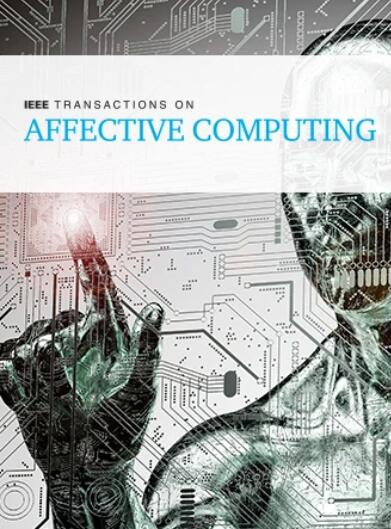Multi-View Facial Expressions Analysis of Autistic Children in Social Play
IF 9.8
2区 计算机科学
Q1 COMPUTER SCIENCE, ARTIFICIAL INTELLIGENCE
引用次数: 0
Abstract
Atypical facial expressions during interaction are among the early symptoms of autism spectrum disorder (ASD) and are included in standard diagnostic assessments. However, current methods rely on subjective human judgments, introducing bias and limiting objectivity. This paper proposes an automated framework for objective and quantitative assessment of autistic children’s facial expressions during social play. Initially, we utilize four synchronized cameras to record interactions between ASD children and teachers during structured activities dominated by the teacher. To address challenges posed by head movements and occluded faces, we introduce a multi-view facial expression recognition strategy. Its effectiveness is demonstrated by experiments in real-world applications. To quantify the patterns of affect status and the dynamic complexity of facial expressions, we use the temporally accumulated distribution of the basic facial expressions and the multi-dimensional multi-scale entropy of the facial expression sequence. Analysis of these features revealed significant differences between ASD and TD groups. Experimental results, derived from our quantified features, confirm conclusions drawn from previous research and experiential observations. With these facial expression features, ASD and typically developing (TD) children are accurately classified (accuracy 92.1%, precision 94.4%, 89.5% sensitivity, 94.7% specificity) in empirical experiments, suggesting the potential of our framework for improved ASD assessment.自闭症儿童社交游戏中的多视角面部表情分析
互动时的非典型面部表情是自闭症谱系障碍(ASD)的早期症状之一,被纳入标准诊断评估。然而,目前的方法依赖于主观的人类判断,引入偏见和限制客观性。本文提出了一种自闭症儿童社交游戏中面部表情客观定量评价的自动化框架。最初,我们使用四个同步摄像机来记录在老师主导的结构化活动中ASD儿童和老师之间的互动。为了解决头部运动和脸部遮挡带来的挑战,我们引入了一种多视角面部表情识别策略。在实际应用中,实验证明了该方法的有效性。为了量化面部表情的情感状态模式和动态复杂性,我们使用了基本面部表情的时间累积分布和面部表情序列的多维多尺度熵。分析这些特征显示ASD和TD组之间存在显著差异。从我们的量化特征中得出的实验结果证实了以前的研究和经验观察得出的结论。根据这些面部表情特征,在经验实验中准确地将ASD和典型发育(TD)儿童分类(准确率92.1%,精度94.4%,灵敏度89.5%,特异性94.7%),表明我们的框架有潜力改进ASD评估。
本文章由计算机程序翻译,如有差异,请以英文原文为准。
求助全文
约1分钟内获得全文
求助全文
来源期刊

IEEE Transactions on Affective Computing
COMPUTER SCIENCE, ARTIFICIAL INTELLIGENCE-COMPUTER SCIENCE, CYBERNETICS
CiteScore
15.00
自引率
6.20%
发文量
174
期刊介绍:
The IEEE Transactions on Affective Computing is an international and interdisciplinary journal. Its primary goal is to share research findings on the development of systems capable of recognizing, interpreting, and simulating human emotions and related affective phenomena. The journal publishes original research on the underlying principles and theories that explain how and why affective factors shape human-technology interactions. It also focuses on how techniques for sensing and simulating affect can enhance our understanding of human emotions and processes. Additionally, the journal explores the design, implementation, and evaluation of systems that prioritize the consideration of affect in their usability. We also welcome surveys of existing work that provide new perspectives on the historical and future directions of this field.
 求助内容:
求助内容: 应助结果提醒方式:
应助结果提醒方式:


